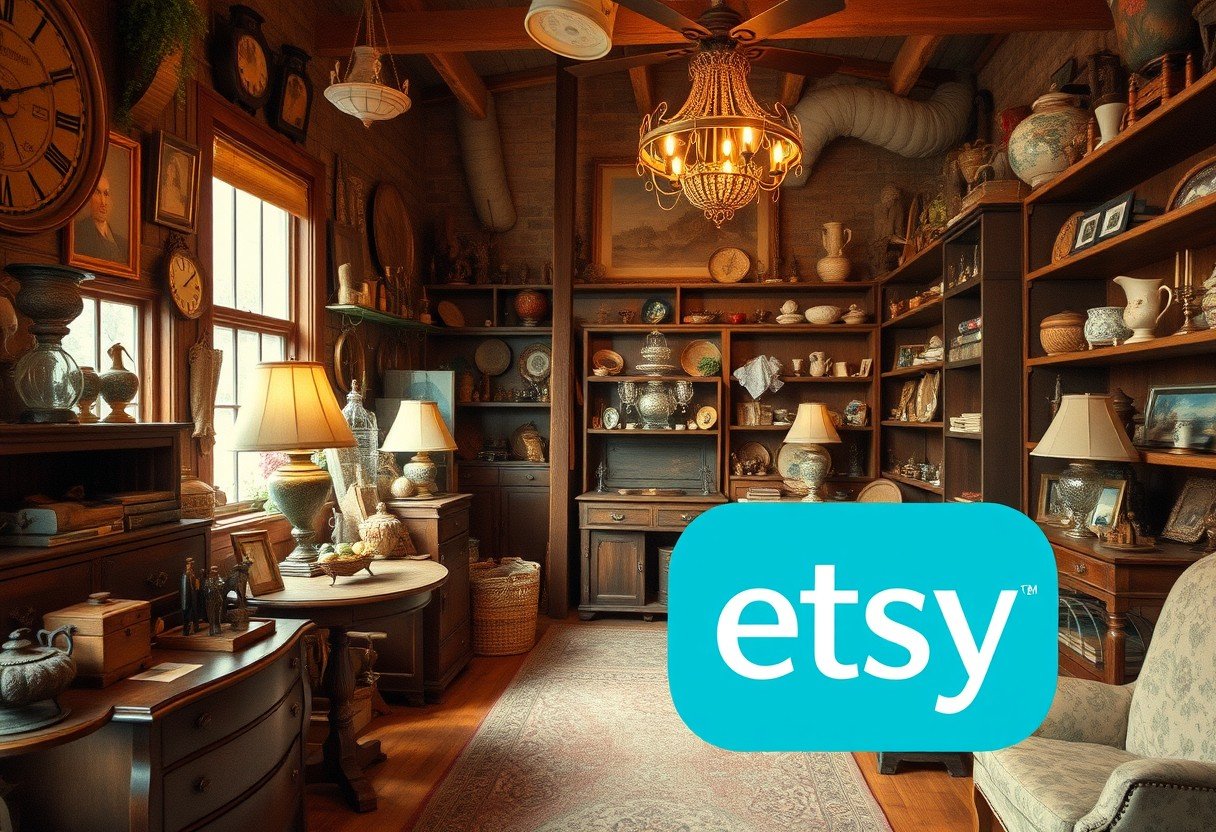Thinking of starting an Etsy shop with a partner? While Etsy’s policy officially allows only one owner per shop, there are smart and legal ways to collaborate. This guide explains how you can structure your business, share management duties, and handle finances together. By understanding the options, you can build a successful joint venture on Etsy while protecting your partnership and creative vision.
Understanding Etsy’s Official Ownership Policy
Etsy’s terms of service are very clear on one point: each shop must be tied to a single account owner. This owner can be an individual person or a registered business entity, like an LLC. They are the one person ultimately responsible for everything that happens with the shop, from following policies to managing finances.
This rule is in place to ensure clear accountability. Etsy needs to know who is legally responsible for the shop’s operations, products, and customer service. This simplifies legal and communication matters for the platform.
However, this doesn’t mean you can’t work as a team. Etsy provides tools and legal structures exist outside of Etsy that allow you to effectively run a shop with multiple people, even if only one name is on the official account.
How to Legally Structure a Multi-Owner Etsy Business
To have multiple owners officially recognized from a legal and financial standpoint, you need to form a business entity outside of Etsy. This business entity then becomes the single “owner” of the Etsy shop. This is the most professional and secure way to co-own a business.
Choosing the right structure is crucial as it affects your personal liability, taxes, and how you manage the business. Consulting with a legal professional or an accountant is highly recommended to choose the best fit for your situation.
Here are the most common options for partners:
- Partnership: This is the simplest structure for two or more people. In a general partnership, all partners share profits, responsibilities, and liabilities equally. However, your personal assets are not protected from business debts.
- Limited Liability Company (LLC): An LLC is a popular choice for Etsy sellers because it provides a layer of protection between your business and personal assets. If the business incurs debt or is sued, your personal belongings like your house or car are generally safe.
- S Corporation: This is a more complex structure that can offer tax advantages for some businesses. It also provides limited liability protection, but it has stricter rules on ownership and operations.
Practical Ways to Share Shop Management on Etsy
Even if you form a legal partnership, you still need a practical way to manage the day-to-day tasks on the Etsy platform. While you can’t have two official owners, Etsy allows the primary account holder to grant access to others.
The best way to do this is by using the “Shop Manager” role. The official shop owner can invite a partner to help run the shop by giving them specific permissions. This is a much safer alternative than sharing your personal login credentials.
A Shop Manager can handle most operational tasks, including listing products, managing orders, and communicating with customers. However, a Shop Manager cannot change ownership details, access financial information, or delete the shop. This ensures the primary owner retains ultimate control over the core aspects of the business.
Weighing the Pros and Cons of a Partnership
Before you jump into a business partnership, it’s vital to consider both the benefits and the potential drawbacks. A great partnership can make your business stronger, but a bad one can create significant stress and conflict. Carefully weighing these points with your potential partner is a critical first step.
Here is a breakdown of the key advantages and disadvantages of sharing ownership of an Etsy shop:
| Pros | Cons |
| Shared responsibilities and workload | Potential for conflicts and disagreements |
| A wider range of skills and talents | Decision-making can be slower |
| Increased creativity and new ideas | Profits must be shared |
| Built-in support system | Loss of full control over the business |
The biggest advantage is often the shared workload, which can prevent burnout and allow each partner to focus on their strengths. For example, one partner might excel at product creation while the other is a marketing expert. On the flip side, disagreements over the creative direction or financial decisions are a common risk that needs to be managed with clear communication.
Essential Steps for Setting Up a Collaborative Shop
To build a successful multi-owner shop, you need a strong foundation built on clear communication and formal agreements. Taking the time to set things up correctly from the beginning will prevent major headaches down the road. A handshake agreement is not enough when your time and money are on the line.
Follow these essential steps to get your partnership started on the right foot:
- Draft a Partnership Agreement: This is a legal document that outlines everything. It should detail each partner’s roles, responsibilities, financial contributions, and how profits and losses will be divided. It should also include a plan for what happens if one partner wants to leave the business.
- Establish Clear Roles: Decide who is responsible for what. For example, who handles customer service? Who manages social media? Who is in charge of shipping? Defining these roles avoids confusion and ensures all tasks are covered.
- Open a Joint Business Bank Account: Never mix your personal finances with your business finances. A dedicated business bank account makes it easy to track income and expenses, simplifies tax time, and maintains transparency between partners.
- Create a Communication Plan: Set up regular meetings to discuss progress, challenges, and goals. Decide which tools you will use to stay organized, such as shared calendars or project management software.
Managing Finances and Responsibilities in a Partnership
Financial transparency is the cornerstone of a healthy business partnership. Money matters can easily lead to disputes if not handled properly from the start. Your partnership agreement should clearly state how profits are shared. Will it be a 50/50 split, or will it be based on initial investment or hours worked?
Tracking all income and expenses meticulously is non-negotiable. Use accounting software or a detailed spreadsheet that both partners can access. This ensures everyone is aware of the shop’s financial health and helps in making informed business decisions.
Tax obligations are another critical area. Depending on your business structure, you may file taxes together as a partnership or separately. An LLC offers flexibility in how you are taxed. It is highly recommended to consult a tax professional to understand your obligations and ensure you are complying with all federal and state laws. This small investment can save you from significant financial and legal issues in the future.
Frequently Asked Questions
Can two people legally own one Etsy shop?
Not directly on the Etsy platform, as each shop is tied to one account. However, you can legally co-own the business behind the shop by forming a partnership or an LLC, which then acts as the single owner of the Etsy account.
What is an Etsy Shop Manager and what can they do?
A Shop Manager is a role you can assign to a partner to help with daily operations. They can list items, manage orders, and talk to customers, but they cannot change banking information, transfer ownership, or delete the shop.
How do you handle taxes with a partner on Etsy?
This depends on your legal business structure. If you form a partnership or LLC, the business entity will have its own tax obligations, and profits are passed through to the partners to report on their personal tax returns. Always consult a tax professional for guidance.
What should be in an Etsy partnership agreement?
A good partnership agreement should include each partner’s roles and responsibilities, initial financial contributions, the profit-sharing structure, decision-making processes, and a plan for dissolving the partnership if necessary.
Is an LLC necessary for a two-person Etsy shop?
While not strictly necessary, forming an LLC is highly recommended. It protects your personal assets from business debts and lawsuits, which is a crucial safeguard for any serious business venture, including a collaborative Etsy shop.








Leave a Comment